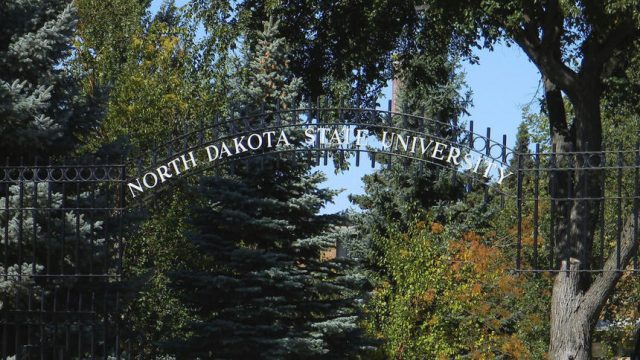NDSU Faculty Group Rails Against “Fascism” at Legislature and “Orchestrated Attack” on Higher Education

File photo.
“It’s easy to perceive being a Republican as being confused with fascism,” Mark Meister, chairman of North Dakota State University’s communication’s department, told a sparsely-attended meeting of NDSU faculty according to a report in the student newspaper, though he went on caution that lawmakers aren’t entirely to blame for what at least some meeting attendees perceive as an “orchestrated attack” on higher ed.
There was plenty of blame, too, for the State Board of Higher Education and Chancellor Mark Hagerott.
Meister organized the meeting to complain about what he perceives as a lack of advocacy for the state’s public universities amid big budget cuts and changes in policy such as allowing university presidents to fire professors with three months of notice instead of a year.
Just 25 people attended the meeting at NDSU, according to the article, but they want to get people from more campuses involved. They’ve even created a closed Facebook page to (I’m not joking) promote what they’re describing as a goal of transparency:
Noting widespread frustration, Meister said he has worked on getting all 11 institutions in this conversation, both face-to-face and online. He started a closed Facebook group called North Dakota Faculty Advocating for Consistent Transparency and Support.
Little steps, like starting conversations and teaching everyone about what faculty actually does will be important, Meister said.
“That’s a place where we can start, to try to build some bridges,” Schuh said. “Clearly, the State Board of Higher Education is not getting the resources that they need to understand what’s going on in higher education.”
Having policymakers and students spend a day in faculty’s shoes may dispel preconceived notions, too, Meister said. “We don’t have to call a press conference every time we do our job.”
Schuh said advocating for one-on-one conversations to fight ignorance will help, as well.
“It’s all of us little strings pulling in the same direction,” she said.
Transparency for thee, but not for me, I guess.
It might also help for faculty members to refrain from suggesting that Republicans – which make up the majority of politically-engaged North Dakotans – are kinda, sorta like fascists.
The few people who attended the meeting acknowledge their lack of success in drawing a crowd. “This room should be packed,” one attendee is quoted as saying in the article, though they had an excuse for that. Attendees apparently blamed the small turnout on “rule through the chilling effect,” as Meister put it.
Keep in mind that higher education in North Dakota has been on the receiving end of a taxpayer-funded windfall in recent years. Even despite a decrease in general fund appropriations in the current biennium, the average biennial increase in funding has averaged nearly 17 percent since the 2007-2009 cycle:
Note that the spending spree happened despite relatively static enrollment growth, which should prompt us all to wonder what the university system really did with all that money.
Also note that this gusher of funding hasn’t done much to hold back tuition increases.
What you’re looking at is a 35 percent increase, over the last decade, for in-state tuition for the state’s two research institutions (UND and NDSU). The other four-year schools saw a 32 percent increase, and the two year schools saw a 19 percent increase.
If state lawmakers did anything wrong over the last decade in terms of higher education spending it increasing spending too much, and too quickly. Like many parts of our state budget, higher education spending was increased to unsustainable levels during the oil boom.
A spending correction was needed.
A recognition of that simple fact may be why this group of malcontents aren’t finding a lot of traction even among other faculty.
Frankly, this group of faculty is everything that’s wrong with higher education. A bunch of entitled, entrenched academics whose derision we should, frankly, use as a barometer for success in higher education policy in our state.
We should watch this group carefully. The angrier they get, the more certain we can be that our lawmakers and higher education administrators are on the right path.






